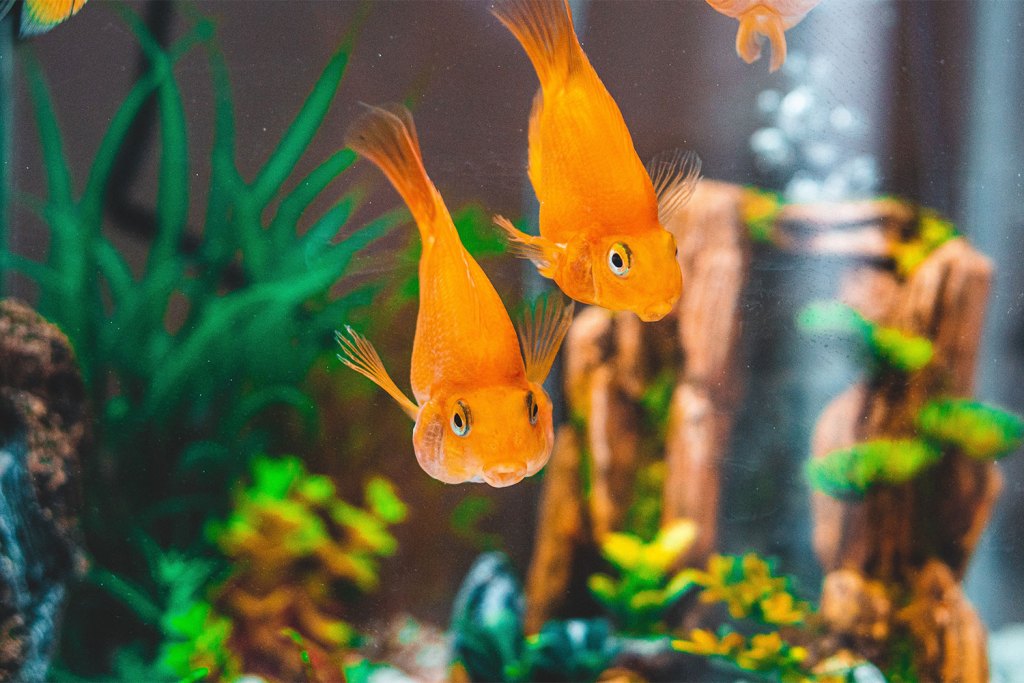An aquarium is a place for fish, coral, sand, rocks, and plants to coexist in beautiful harmony, creating one of the most tranquil environments that you can admire. One thing that does not add to the peaceful, natural beauty of an aquarium is worms. Worms are gross! They squirm, and when it comes to aquariums, they can be parasitic.

Camallanus worms are a commonly encountered parasitic worm in aquariums. They can infect a wide range of fish species and wreak havoc on your aquarium system as a whole. Other worms in your tank may not be parasitic, but they’ll eat everything on the bottom of the tank. They are small and fit easily into gravel and sand, making them hard to detect or capture. Luckily, there are some great quick and easy solutions to getting rid of these unwanted guests.
First step: Detecting camallanus worms and other worms
Since these worms are so small, they can oftentimes be extremely difficult to detect. The best way to detect them is to know the signs and monitor your tank. Your fish can either be lightly affected or heavily affected by callamanus worms. Typically, heavy infections are only noticeable in fish with weakened immune systems, so healthy fish don’t usually display many systems. Regardless of the health of your fish, it is important to look out for these signs of callamanus worms:
- Red, thread-like worms protruding from the anus of a fish.
- Abdominal bloating in your fish.
- Disinterest in food.
- Pop-eye or ulcers.
- For regular, small, non-parasitic worms, you should look for them at night. These worms don’t like the light and will feed or come out only when it’s dark. You can use red light to make them visible to the human eye.
Treatment options
There are many great treatment options to get rid of these worms that don’t require an excessive deep clean. Sometimes, however, a deep clean can be the most effective way to rid the worms from your tank. If you want to pursue a deep clean, it is important to do a full water change, scrub down the tank, and add the cleaning chemicals. This will help ensure a clean, healthy aquarium. A deep clean isn’t always necessary, however. Sometimes, more simple options can get the job done without disturbing your fish. Here are some great options for deworming your tank:
- Anthelmintic medications: This medication is designed specifically for parasitic worms in your fish and aquarium. This medication sometimes only paralyzes the worms rather than kills them. By paralyzing them, your fish will be able to safely excrete them from their bodies, and the worms will be cleaned up through your filter system. Some brands of this type of medication include fenbendazole, levamisole, and praziquantel.
- Build a worm trap: For non-parasitic worms, sometimes the easiest option is to build a worm trap in your tank. To build a worm trap, use a plastic container or jar with a lid, cut an X shape into the lid, and push slightly inwards to create a little opening. Next, use mashed up clam or shrimp bait inside the jar or container to attract the worms. Place the trap on its side on the aquarium floor and leave it overnight. The worms will be attracted by the scent of the bait and get trapped inside the container, making them easy to dispose of.
- Vacuum gravel or sand: Another quick and easy solution is to vacuum the gravel or sand. This will pick up any hiding worms without needing a lengthy, tedious deep-clean of your tank.
- Prevention

The only thing better than treatment is prevention. You can learn tips and tricks to prevent worms from showing up in your tank in the first place. Some ways to prevent unwanted worms in your tank include:
Quarantine new fish before adding them to your aquarium.
- Don’t overfeed your fish.
- Vacuum the tank floor regularly.
- Ensure a healthy, efficient filter is in place.
- Don’t skip out on any important chemicals for maintenance.
As you can imagine, worms in your fish tank can be an unnecessary pain. They can affect the health of your fish and tank. It is important to first identify the type of worm you are dealing with. Once that is determined, you can choose the best course of action that will get rid of the worms quickly and efficiently.
Editors' Recommendations
- What fish can live with bettas? These are your best bets for fish buddies
- How long do guinea pigs live? Here’s what to know
- Can you keep pet seahorses in your home aquarium? Here’s what you need to know
- Wondering what sharks are ideal for your home aquarium? These sharks fit right in
- A simple guide to what to feed tadpoles in your aquarium



